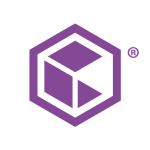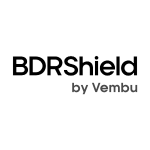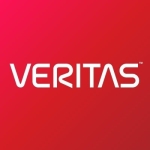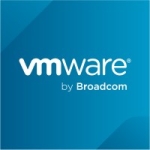What is our primary use case?
We use Zerto primarily as a cloud provider to set up either ground-to-cloud or cloud-to-other cloud sites for disaster recovery.
We also use it as a migration tool to get people's virtual VMs from ground to cloud.
Another use case is to protect our virtual machines in our environment. We have our own internal IT, and we protect them with Zerto, but the vast majority, probably 98% or 99% or even more, of what we do is with customers since we're a cloud service provider. As a service provider, we're not classified as an MSP. We do resell Zerto to our clients.
What is most valuable?
What I appreciate about Zerto is the speed to recover. We have two ways that we migrate them into the cloud: one is with Zerto and one is with Acronis. Acronis is a bare-metal restorer that takes much longer to do the restore, depending on the size of the VM.
I appreciate that Zerto already has the disk synchronized to the cloud, and it just updates deltas every five seconds or so. Should there be an instance, such as a migration, or if the customer has been ransomed, or if they want to roll back for any reason, they can do it because we have their data in the cloud.
When I was an IT manager, our RPO and RTO were measured in hours or days; now it's measured in minutes, which is huge for disaster recovery.
The interface and ease of use of Zerto make it easy. We're getting into version 10 now. The version 10 update 4 took really long to deploy, and we had to back off and do update 2 because that seems to deploy much quicker.
Other than that, it's pretty easy to deploy and manage; we can set it up through Zerto Cloud and update it remotely.
I see the benefits of Zerto immediately after deploying it. As a former IT manager, when I saw what it did, it was a revelation, and I thought this is excellent for disaster recovery. Zerto's near synchronous replication is fantastic. It helps our RPO and RTO and is beneficial all around. In terms of RTO and RPO, Zerto improves them to seconds. It indicates right in the health of the VPG how many seconds the RPO or RTO is.
Our DR testing with Zerto is much quicker. We encourage our customers to do testing so they get familiar with recovery processes. We maintain a playbook and a method of procedure, and every test adds something new to the MOP, improving how quickly we can resolve any disaster.
Zerto has a significant impact on our IT resiliency strategy. We do it for customers, making all the difference in the world. It's not just about me as an IT manager using Zerto; as a service provider, we host people's data in the cloud for disaster recovery, making instantaneous recovery possible that wouldn't be as quick otherwise.
What needs improvement?
In terms of improvement, Zerto does reasonably with support and responds quickly to help us. I don't know if there's anything they could do better, but we'd prefer Zerto to work with our open cloud product for disaster recovery and migrations. So far, they haven't made their product compatible with KVM, and we would appreciate seeing that.
For how long have I used the solution?
I have been using Zerto in my career for four years.
What do I think about the stability of the solution?
I haven't seen much instability with Zerto; it seems pretty stable overall.
What do I think about the scalability of the solution?
Zerto scales efficiently; we have hundreds of hosts, with production and disaster recovery environments. We set it up to replicate, such as from Grand Rapids to Indianapolis or Detroit, so it scales pretty efficiently.
How are customer service and support?
Zerto's support is reasonably good. If they know I'm on the call with a customer, they usually join a Zoom session quickly to help resolve issues. Sometimes it's resolved quickly, while other times it may take two or three sessions, but they're generally pretty good.
Which solution did I use previously and why did I switch?
I use alternatives to Zerto, as I'm a Veeam engineer certified in Veeam. We use Acronis and Cohesity, but in my opinion, there's nothing that works for disaster recovery quite like Zerto. The main differences between Zerto and Veeam are ease of use and convenience.
Veeam allows a restore of a server in a test environment while detecting any malware before connecting to the network, which I haven't seen in Zerto. Zerto just replicates what's there without evaluating for malware. Zerto is quick and easy to use while Veeam is more complicated but has more capabilities for backup. I haven't greatly used Veeam's continuous replication feature, but from my experience, Zerto is easier to set up and use, and it's less expensive as.
How was the initial setup?
When I first deployed Zerto about four years ago, it took about 15 to 20 minutes to set up after the client had a Windows server ready. We'd give them the installer and set it up, then pair it with their hosts. After installing the VRAs and setting up the VPGs, once the first VPG is set up, we can do the rest without client involvement. Overall, the total time ranged from half an hour to 45 minutes, depending on how many they wanted to set up initially.
What about the implementation team?
I'm a Professional Services Engineer, which means that I implement projects. When our salesman sells disaster recovery with Zerto to a client, I'm the one who sets it up, creates the VPGs, and ensures all the syncs work properly; the long-term maintenance is handled by another team.
What was our ROI?
Zerto has a significant impact on our IT resiliency strategy. We do it for customers, making all the difference in the world.
What's my experience with pricing, setup cost, and licensing?
Zerto is easier to set up and use, and it's less expensive.
Which other solutions did I evaluate?
We use alternatives such as Acronis and Cohesity.
What other advice do I have?
The recovery process depends on the customer. Zerto is one of those things that we set up and monitor, but if the customer isn't monitoring their VMs, it can complicate things.
We had one customer who made a decision to protect only a few of their VMs and then got hacked, which wasn't Zerto's fault or ours; it was their decision.
However, for customers that have everything protected, we've had quite a few successful recoveries. There have been situations involving ransomware or data recovery situations when we used Zerto. I haven't personally been involved in one, but our company has had multiple incidents where we were able to recover without paying the ransom.
Zerto does require maintenance on our end. We register the client in the cloud, and if they move away from us, we unregister them and remove their tenant. We also have updates to do, including the Zerto virtual manager and the virtual replication appliances on the hosts. With hundreds of hosts and multiple data centers, we have a lot of work to do, which is why we have someone dedicated to updating Zerto.
On a scale of 1-10, I rate Zerto a 9.
Disclosure: PeerSpot contacted the reviewer to collect the review and to validate authenticity. The reviewer was referred by the vendor, but the review is not subject to editing or approval by the vendor. The reviewer's company has a business relationship with this vendor other than being a customer: Reseller


















